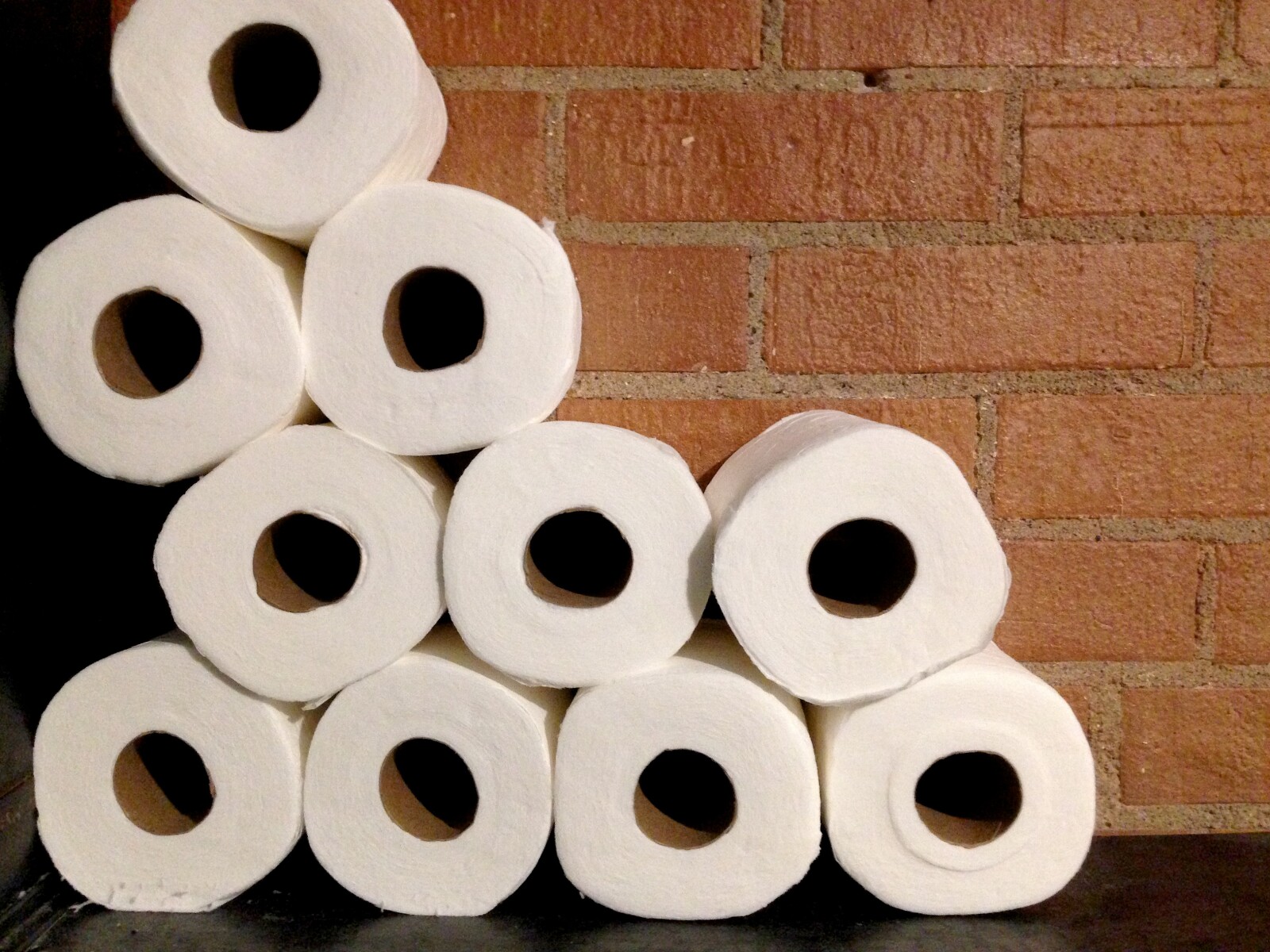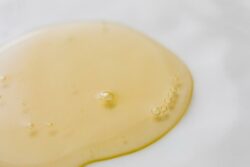Contaminated Cottonelle Wipes Spark Nationwide Lawsuit
Like a storm brewing beneath the surface, a bacteria infestation in Cottonelle Flushable Wipes has sparked a nationwide lawsuit. This article explores the contamination incident, the consequent recall, and the class action lawsuit brought against Kimberley-Clark. We delve into the challenges posed by Pluralibacter gergoviae, the symptoms reported by users, and the legal implications for consumers, providing a comprehensive look at a case that could redefine the accountability of consumer goods manufacturers.

Background on Cottonelle Wipes Contamination
While the Cottonelle brand is widely regarded for its hygiene products, it fell under scrutiny in February 2020 when certain lots of Cottonelle Flushable Wipes and Cottonelle GentlePlus Flushable Wipes were discovered to be contaminated with the rare bacterium, Pluralibacter gergoviae. This raised serious concerns about the long term health implications for consumers, given the bacterium's potential to cause infections that are resistant to antibiotics. The situation severely dented consumer trust and raised questions on product safety. The subsequent recall of the affected lots did little to assuage these concerns as the communication was perceived as vague, leaving many customers confused and apprehensive about the potential health risks associated with the continued use of these products.
The Impact of Pluralibacter Gergoviae
The Pluralibacter gergoviae contamination in Cottonelle wipes has had significant health impacts on consumers, manifesting in various infections that are notoriously difficult to diagnose and treat due to their resistance to common antibiotics. This has raised serious concerns about the impact on public health, particularly the long term consequences of such exposure.
- Increased Health Risks: The contamination has led to a surge in infections, putting a strain on healthcare systems and resulting in increased medical costs for consumers.
- Long-Term Consequences: Prolonged exposure to P. gergoviae could potentially lead to chronic health conditions, thus affecting the quality of life of individuals.
- Widespread Panic: The recall and subsequent lawsuit have created public unrest and mistrust towards hygiene product manufacturers.
Symptoms Reported by Users
Numerous users of the contaminated Cottonelle wipes have reported experiencing various adverse symptoms, indicative of infections potentially caused by the rare bacterium, Pluralibacter gergoviae. These symptoms range from mild irritations to severe infections, and in some cases, long-term health effects. The exposure to P. gergoviae has been linked to respiratory, skin, and urinary tract infections, potentially posing long-term health risks given its resistance to common antibiotics. The widespread reports of these adverse effects have significantly tarnished the brand reputation of Cottonelle wipes, causing a substantial loss of consumer trust. As users continue to experience symptoms and the associated health risks, the brand's credibility is further compromised, leading to a nationwide lawsuit.
Undiagnosed Injuries From Contaminated Wipes
Undiagnosed injuries linked to the use of contaminated Cottonelle wipes present a significant challenge to both the medical community and affected consumers. The presence of the rare bacterium Pluralibacter gergoviae in these wipes has led to a myriad of symptoms that are difficult to diagnose and treat.
- Many consumers have suffered from symptoms such as skin irritations, urinary tract infections and respiratory issues, which have gone undiagnosed due to the rarity of this bacterium.
- The long term health effects of exposure to this bacterium are still uncertain, raising concerns about potential chronic conditions.
- The difficulty in diagnosing and treating these injuries complicates the process of claiming compensation, thus exacerbating the distress faced by affected consumers.
This situation underscores the urgency for thorough investigation and appropriate redress.
Details of the October 2020 Recall
In response to the undiagnosed injuries and adverse effects experienced by consumers, Kimberley-Clark initiated a voluntary recall of certain lots of Cottonelle flushable wipes in October 2020. The recall affected products manufactured between February 7, 2020, and September 14, 2020. Despite these measures, consumers faced significant challenges during the recall process. Many reported difficulties with submitting information requests on the Cottonelle website and reaching customer service representatives. Furthermore, the recall notice's vague and incomplete answers led to confusion and frustration. This situation, along with allegations of Kimberley-Clark downplaying the risks, severely impacted consumer trust in the brand. The ordeal underscores the importance of transparency and efficiency in recall procedures to maintain consumer confidence.
Kimberley-Clark’s Recall Communication
How did Kimberley-Clark communicate with consumers during the recall, and was their approach effective in addressing the concerns and complaints raised by affected customers? Kimberley-Clark issued a voluntary recall notice and created a webpage for frequently asked questions. However, many found their recall communication lacking in clarity and transparency.
- The company's effectiveness of recall communication was questioned as customers struggled to reach customer service representatives and experienced difficulties in submitting information requests on the website.
- There was a perception of dilution of information, as Kimberley-Clark was accused of altering the language in the FAQ section to downplay the risks.
- This incident impacted consumer trust and brand reputation, with many customers expressing dissatisfaction and concern over the handling of the situation.
Challenges Faced by Consumers Post-Recall
Following the recall announcement, consumers encountered a myriad of challenges, including diagnosing health issues caused by the contaminated wipes and seeking adequate compensation for their damages. These difficulties faced were exacerbated by a lack of clear information and assistance from the company.
Many reported customer support issues, such as delayed responses and inadequate guidance. Some found it hard to establish a clear link between their health problems and the use of contaminated wipes, leading to diagnostic challenges. The process of seeking compensation was equally challenging, as consumers had to provide proof of purchase and personal health information.
In the wake of these issues, the class-action lawsuit emerged as a beacon of hope, providing consumers with a collective platform to fight for redress and accountability.
Overview of the Class Action Lawsuit
Triggered by the post-recall challenges consumers faced, the class action lawsuit against Kimberley-Clark presents a significant opportunity for affected individuals to seek collective redress and accountability. The lawsuit centers on the potential long-term health effects of P. gergoviae contamination, and the erosion of consumer trust and product safety in the aftermath of the recall.
- The lawsuit alleges that Kimberley-Clark failed to adequately warn consumers about the risk of infection from contaminated wipes, which may have severe and long-lasting health impacts.
- It argues that the company's handling of the recall damaged consumer trust and raised serious questions about product safety.
- Lastly, it seeks to ensure that Kimberley-Clark is held accountable for its actions, with the goal of preventing a similar situation in the future.
Monetary Compensation for Affected Consumers
In light of the allegations against Kimberley-Clark, the class action lawsuit seeks substantial monetary compensation for consumers who purchased or used the contaminated Cottonelle wipes. The potential damages are expected to cover the cost of purchases and any associated medical expenses. As a cornerstone of consumer protection, such lawsuits serve to hold corporations accountable for the safety and quality of their products.
| Potential Damages | Compensation | Consumer Protection |
|---|---|---|
| Cost of purchases | Reimbursement | Hold corporations accountable |
| Medical expenses | Coverage | Ensure product safety |
| Emotional distress | Compensation | Uphold consumer rights |
| Legal fees | Payment | Legal recourse |
| Other related costs | Varies | Comprehensive protection |
This lawsuit signifies the importance of consumer protection in ensuring responsible corporate behavior and providing restitution for affected consumers.
Alleged Violations of Business Law
Kimberley-Clark's handling of the contamination and recall process has led to allegations of violations of the New York General Business Law. These allegations come on the back of evidence of negligence in the firm's conduct.
- Kimberley-Clark allegedly failed to promptly notify consumers and retailers about the contamination, endangering public health.
- The company is accused of providing incomplete and misleading information about the severity of the contamination and the associated health risks.
- Furthermore, Kimberley-Clark is charged with inadequately handling the recall process, which potentially led to further exposure to the contaminated wipes.
These alleged violations, if proven, could significantly impact lawsuit outcomes. Not only could they lead to Kimberley-Clark facing substantial fines and damages but also damage the company's reputation and consumer trust.
The Role of Class Actions
Numerous consumers affected by the contaminated Cottonelle wipes have resorted to class action lawsuits as a means to collectively seek compensation and hold Kimberley-Clark accountable for its alleged negligence. The role of class actions in such instances is pivotal; they allow a large number of individuals, who may not have the means or ability to individually pursue litigation, to collectively seek redress. In this scenario, the impact of class actions on consumer protection is substantial as they exert pressure on corporations to rectify faulty practices and prevent further harm. Moreover, class actions provide a platform for consumers to voice their concerns, exerting a collective influence that amplifies their bargaining power and potential for obtaining justice.
Who the Lawsuit Represents
The class action lawsuit specifically aims to represent any New York resident who purchased the contaminated Cottonelle Flushable Wipes or Cottonelle GentlePlus Flushable Wipes during the period of February 7, 2020, to September 14, 2020. While the lawsuit currently is statewide, its potential nationwide impact is palpable, reflecting possible future legal actions in other states.
- The lawsuit's broad scope offers legal remedies for affected consumers who might otherwise struggle to seek individual compensation.
- It underscores the gravity of the situation and the alleged negligence of Kimberley-Clark, the producer of Cottonelle wipes.
- Lastly, it sets a precedent for other manufacturers, emphasizing the importance of product safety and the consequences of failing to ensure it.
Eligibility to Join the Lawsuit
In order to join this class action lawsuit, consumers must meet specific eligibility criteria. Primarily, those who have purchased and used the Cottonelle Flushable Wipes or the Cottonelle GentlePlus Flushable Wipes between February 7, 2020, and September 14, 2020 are included within the lawsuit scope. Moreover, consumers who experienced adverse health effects due to the alleged contamination are particularly encouraged to join. The lawsuit aims to address the significant impact on consumers, including potential health risks and financial losses due to the contaminated wipes. However, current legal actions are focused on New York residents. Consumers from other states should monitor the situation closely, as the scope may expand to include additional jurisdictions in the future.
Legal Rights for Non-New York Residents
Despite the current focus on New York, it's crucial for residents of other states who purchased and used contaminated Cottonelle wipes to understand their legal rights and potential avenues for compensation. This class action lawsuit has potential nationwide implications, and those outside of New York should remain vigilant for future lawsuits outside of NY.
- If residing outside New York, consult a local attorney to understand your legal rights.
- Stay informed about potential recalls or legal actions related to Cottonelle wipes in your state.
- Keep records of purchases and any health issues potentially linked to the usage of these wipes.
These actions can help protect your rights and ensure you're prepared if future lawsuits emerge in your state.
Seeking Legal Advice for Affected Consumers
Given the serious health risks associated with the contaminated Cottonelle wipes, it is paramount for affected consumers to seek legal advice in order to understand their rights and potential avenues for compensation. The legal implications for Kimberley Clark are profound, as they face nationwide lawsuits for the alleged contamination and the potential long term health effects of P. gergoviae exposure. Consumers may be entitled to compensation for any adverse health effects, undiagnosed infections, or other damages resulting from use of the contaminated wipes. Legal professionals can provide invaluable guidance on the complexities of class action lawsuits and the potential for individual claims. Initiating this process promptly can be crucial to ensuring a fair and timely resolution.
Frequently Asked Questions
What Safety Measures Is Kimberley-Clark Implementing to Prevent Future Contamination of Their Products?
In response to the product recall, Kimberly-Clark is implementing stringent safety measures for contamination prevention. These include enhanced testing and inspection of raw materials and finished products, rigorous sanitation practices in manufacturing facilities, and increased employee training on hygiene and safety protocols. The firm is committed to ensuring the safety and quality of their products, and these measures are designed to prevent future contamination incidents.
How Can You Identify if Your Purchased Cottonelle Wipes Fall Within the Recalled Lots?
To determine if your Cottonelle wipes are from the recalled lots, refer to the lot number on the packaging. This information was disseminated through the company's recall communication. If your product's lot number matches those listed in the recall, cease usage immediately. In light of the recall, you may consider product alternatives such as other brands of flushable wipes or traditional toilet paper until Cottonelle resolves the contamination issue.
How Long Does It Take for Symptoms of P. Gergoviae Infections to Appear After Exposure?
The timeline for the onset of symptoms due to P. gergoviae infection can vary significantly depending on the individual and the site of infection. Typically, symptoms may appear within a few days to a week after exposure. Early recognition and appropriate treatment are central to infection prevention. P. gergoviae treatment often involves a regimen of specific antibiotics, as this bacterium is resistant to many common types. Consultation with a healthcare provider is essential if symptoms appear.
Can P. Gergoviae Infections Caused by the Contaminated Wipes Be Transmitted From Person to Person?
Infection prevention plays a crucial role in managing Pluralibacter gergoviae. The transmission control of this bacterium is complex, as it is not typically transmitted from person to person. It is often associated with healthcare settings and can be found in water, soil, and cosmetic products. Therefore, while person-to-person transmission is less likely, good hygiene practices, especially in healthcare environments, are essential to prevent its spread.
If a Consumer Has Thrown Away Their Receipt, Can They Still Participate in the Class Action Lawsuit?
Participation in litigation, such as a class action lawsuit, often necessitates proof of purchase, typically in the form of a receipt. However, if a consumer has discarded their receipt, alternatives may be accepted, depending on the lawsuit's specific requirements. These can include credit card statements, product packaging, or other forms of evidence demonstrating purchase. It is advised to consult with a legal representative to understand the specific conditions for litigation participation in such cases.

This post has been generated by AI and was not reviewed by editors. This is Not legal advice. Please consult with an attorney.




